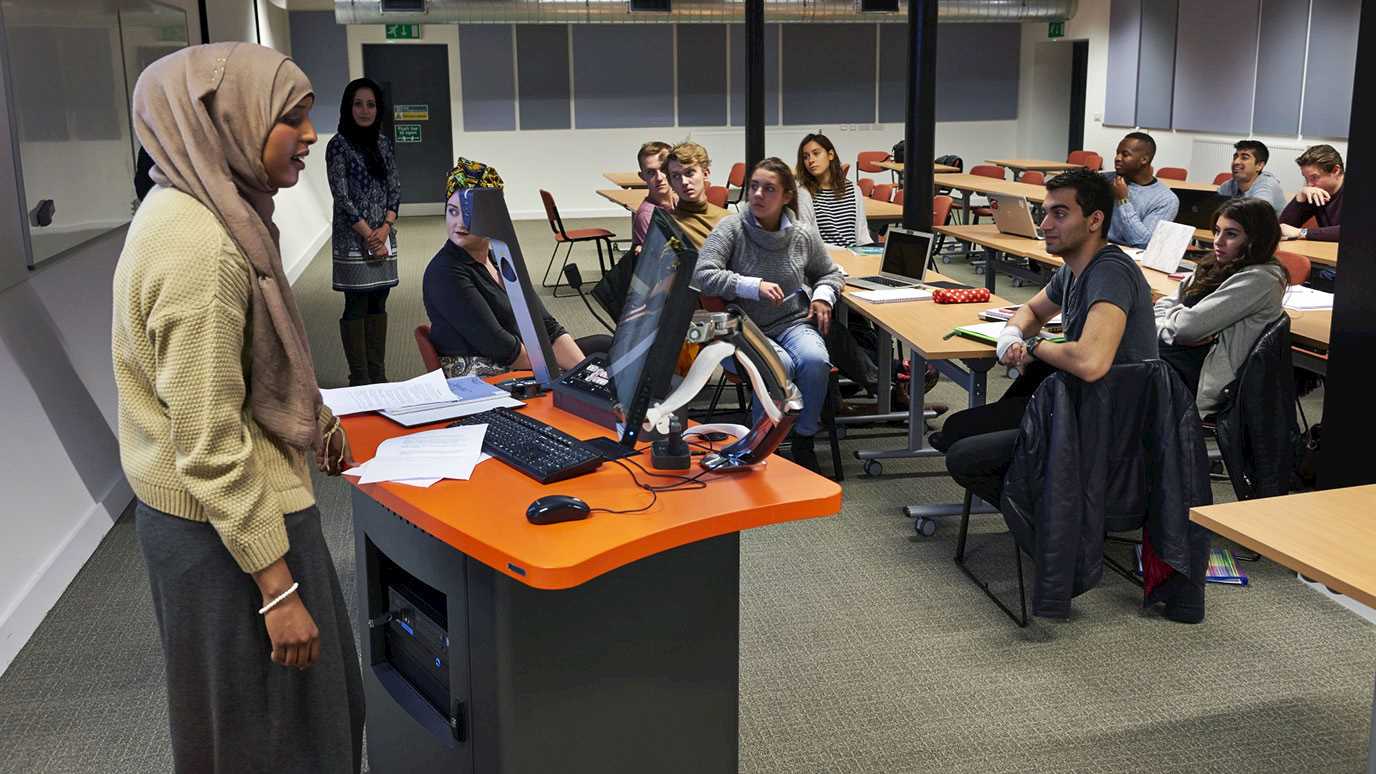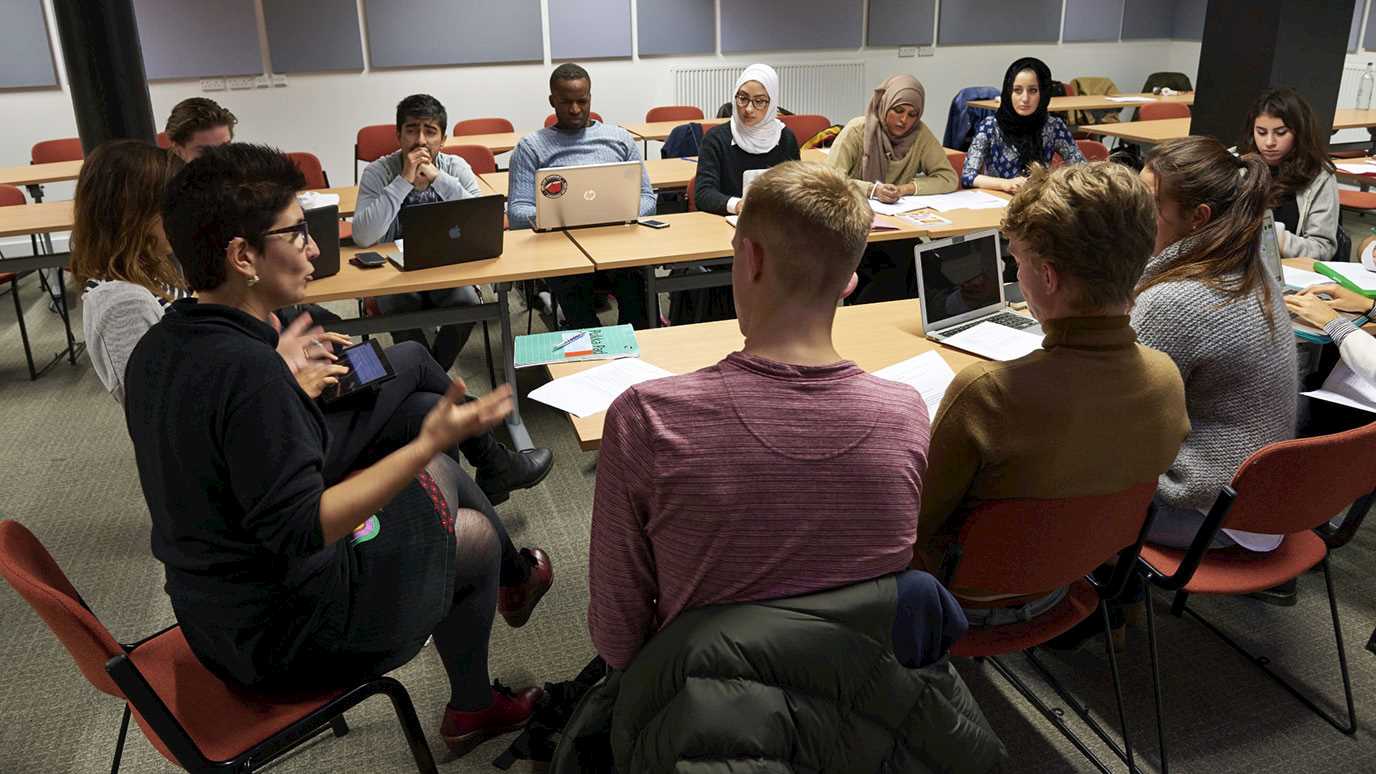In order to apply to undertake a postgraduate research degree in the department, you should:
1. Make an enquiry and secure supervisor support before you apply
In the first instance, you should check the research interests of members of academic staff in the department to see who is active in the area that you are interested in. It is helpful at this stage if you can provide any member of staff you contact with an outline of a research proposal and a CV, setting out your qualifications and experience. You should expect to have a series of discussions with the member of staff (by email, by telephone/videoconference, or in person) about the project, about options for funding, and about your career aspirations. These discussions will help the member of staff decide whether or not they would be an appropriate supervisor for your proposed project.
2. Submit an application
When a member of staff has agreed to supervise your project, you should then submit an application to RHUL using the online application system. If you are applying for funding from either TECHNE or SEDarc, you must submit these applications simultaneous to your RHUL application and follow the TECHNE or SEDarc deadlines.
For the RHUL application, one of the most important aspects is the research proposal.
The purpose of the research proposal is two-fold: first, to demonstrate how your topic corresponds with the interests and expertise of your proposed supervisor(s) and, second, to make clear how the research will make an original contribution to political and/or philosophical knowledge.
The proposal is important as it will allow the department to assess your aptitude for doctoral-level research, to allocate supervision appropriately, and to ensure we are fully able to support the study you propose. Although you are required formally to submit the proposal with your application for doctoral study, it is a document you should develop in discussion with academic staff in the Department of Politics, International Relations and Philosophy, particularly your selected supervisors.
The proposal should be approximately 2,000 words in length (excluding the bibliography) and include the following sections
a) Title
At this stage, a working title that summarises the proposed focus is more than adequate.
b) Introduction, Research Question and Rationale
The introduction should, in a succinct way, provide an overview of, and rationale for, the proposed project. You should explain the project’s focus, its main research question and broad aims, and how it will make an original contribution to political knowledge. The introductory section needs to outline the basic argument the thesis intends to advance, as well as what it will aim to demonstrate. In simple terms, explain what the project is about, why it is innovative, why the project matters, why you are the right person to undertake it, and why the Department of Politics, International Relations and Philosophy is the most appropriate place to be based.
c) Literature Review
Any proposed project should make clear how it relates to existing research on the topic (or related topics). In this section, you should summarise the current state of scholarship on your topic and explain the ways in which your project will draw from, and build on, that work. In this part of the proposal, you are demonstrating your knowledge of the field and the ways in which your project will add meaningfully to it.
d) Data and Methodology
If you intend to do empirical research, in this section you should detail the sources of data (qualitative and/or quantitative) that you will require in order to answer your project’s research questions and the specific methods you intend to apply in order to collect or generate those data. You should offer a clear explanation for your selection of investigative techniques. Why one method rather than another?
This section should also offer an account of your analytical strategy. How, specifically, will you make sense of your data? Will you require any specialist software to complete that analysis? Will your project involve fieldwork? If so, to where? How will that fieldwork be financed and supported?
In this section you should, finally, reflect on the ethical implications of your proposed topic. Which ethical issues are raised by your project? How do you intend to address them?
e) Proposed thesis structure and timeline
In this section you should outline the structure of your thesis, and demonstrate that you have thought about how you are going to structure and organise the argument put forward in your thesis. Additionally, you should propose a timeline for your project, and demonstrate how you think you will organise your time in the three years you will work on your thesis.
f) Bibliography
List here, using any common citation system, the sources referred to in the proposal.
3. After applying
All applications are subject to review by a panel of academic members of staff in the Department of Politics, International Relations and Philosophy. Applicants will be informed of the outcome as soon as the panel has met.
Further details
For further information concerning applications for postgraduate research in the department, please contact Professor Jennifer Piscopo, the Department’s Postgraduate Research Lead, who is responsible for PhD Admissions and Recruitment.






















